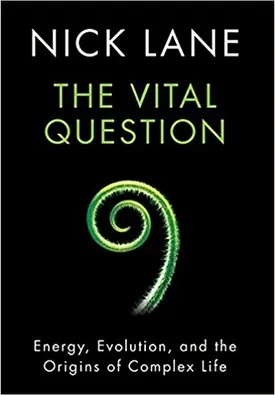Nick Lane
Nick Lane is a scientist and acclaimed non-fiction author whose work explores evolutionary biology, biochemistry, genetics, and the origins of life. He is the author of five books, including ‘Life Ascending: The Ten Great Inventions of Evolution’ and ‘Oxygen: The Molecule that Made the World.'
Nick Lane was born in Ilford, Essex in 1960. He attended Norwich School and studied Chemistry at the University of York in the late 1970s. He moved to the University of Sheffield in 1983 and subsequently completed a PhD in the Biochemistry Department. After his PhD, Lane worked for many years on a postdoctoral fellowship in the Department of Bio-organic Chemistry at the University of Cambridge. He subsequently was appointed a lecturer at Queen Mary, University of London in 1992.
Lane is a Fellow of the Royal Society, a Fellow of the Royal Historical Society, and a Fellow of the Royal Society of Chemistry. In addition, he holds a CRUK Advanced Fellowship and was awarded the Research Councils UK Fellowship for Outstanding Research for his work on mitochondrial bioenergetics and evolutionary dynamics.
Lane's books are an informative excavation of the extraordinary effects of his field of study, evolutionary biochemistry. He has a talent for uncovering new details and ideas and tying them into the bigger picture of our history and our future. His books bring to life the story of evolution, as well as the technological advances - as well as ways of understanding - that it has prompted humanity to make. Lane delves into the scientific processes and explains them in an accessible manner.
Lane’s first book, Oxygen: The Molecule that Made the World (2002), explored the links between the evolution of oxygen and the evolution of complex life. It has been described as a ‘must read for anybody interested in the history of the Earth and life’ by the UK’s Guardian newspaper. His second book, Power, Sex, Suicide (2005) examined the evolutionary links between energy metabolism and sexual reproduction in animals. It was awarded the 2006 British Medical Association Book Award for popular science.
In his third book, Life Ascending: The Ten Great Inventions of Evolution (2009), Lane discusses the ten ‘great inventions of evolution’, from DNA replication to sexual reproduction to photosynthesis. He explains how each major innovation has enabled life to adapt, survive, and thrive throughout the evolutionary process. It won the 2010 Royal Society Prize for Science Books.
His next book, The Vital Question: Why is Life the Way it is? (2015) focused on the big question of why life itself exists. He tackles this question by looking at what we know about energy metabolism and how it drives evolution. The book has received wide-ranging praise, including from the physicist Stephen Hawking who called it ‘a brilliant book’.
In 2019, Lane published The Music of Life: Biology Beyond Genes, which examines the evolution of life in nature from the perspective of information. He uses this perspective to explain how evolution by natural selection works, why it is so innovative, and how life can continue to evolve in the face of obstacles.
Nick Lane is an acclaimed author and scientist whose work sheds light on the complex process of evolution. He has written five books that explore evolutionary biology, biochemistry, genetics, and the origins of life. Through his work, he offers a fascinating look into the scientific complexities behind life’s evolution.

